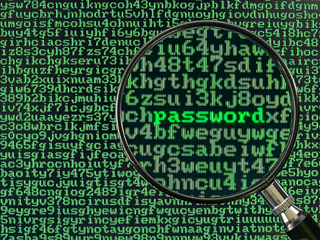
What would super Wi-Fi be like? It will be able to break through walls, fly, turn invisible, and leap over buildings in a single bound. Or… it won’t flicker and die when you scoot your laptop a few feet to the left.
This brand of “super Wi-Fi” may soon become available as the Federal Communications Commission prepares to approve a final ruling that would expand unlicensed “white spaces” in the airwave spectrum that were previously reserved for television broadcast use. The white spaces, while reserved for TV broadcasts, were not actually usable; rather they were channels that no one broadcasted on so as to prevent interference. But with the switch from analog to digital TV signals complete, interference is not a concern anymore.
What makes the super Wi-Fi super? The airwaves reserved for television broadcasts are stronger and capable of passing through walls and getting greater range, so if this is applied to Wi-Fi, we could be looking at Wi-Fi signals with a range that is 16 times greater than what they are currently capable of reaching. So, good news for those of you who are currently poaching your Wi-Fi signal from the neighbor’s unsecured network — pretty soon you will no longer have to huddle with your laptop near the wall separating your apartments. You will soon have unprecedented mobility!
The general purpose of the FCC’s approval of the ruling, which is expected to take place on September 23, is to free up Internet traffic for mobile users. “Consumer demand for spectrum-hungry mobile devices is a very good thing, but it also creates infrastructure problems,” said FCC Chairman Julius Genachowski in an interview with the Mercury News. “This is one of the most important things that we’re working on.”
The move is sure to have wide-ranging effects, including expanding Broadband signals to rural locations, connecting appliances, and the added convenience of broadening the Internet range for mobile devices. It is also sure to invite an onslaught of new businesses that will be poised to capitalize on the myriad new uses of a stronger, broader Wi-Fi.
“This will also be a platform for innovators and entrepreneurs,” Genachowski said to the New York Times. “There is every chance of this leading to the development of one or more billion-dollar industries.”
The move has its opponents, though. Some have expressed concern about the interference that previously unused white spaces will now pose to wireless transmission signals. The groups that have expressed their reservations include churches, theater owners, and sports arenas – all of which rely heavily on wireless microphones.
In 2009 the Association for Maximum Service Television and the National Association of Broadcasters filed a lawsuit to block the FCC’s decision to free up the airwaves, stating that such unlicensed usage of airwaves is illegal. In the petition review filed by the two groups, they state: “The commission’s decision to allow unlicensed access to the television spectrum will have a direct adverse impact on MSTV’s and NAB’s members because it will allow harmful interference with reception of their broadcast signals.”
The FCC could not be reached for comment and has not specified how it plans to address this issue. The lawsuit has since been put on hold, and last March the National Association of Broadcasters released a statement in which NAB executive vice president Dennis Wharton commented: “NAB intends to work with the FCC and Congress to build a communications system that benefits all Americans. We will examine closely the details of the National Broadband Plan, and encourage Members of Congress to do the same.”
Image source: venturebeat.com


















